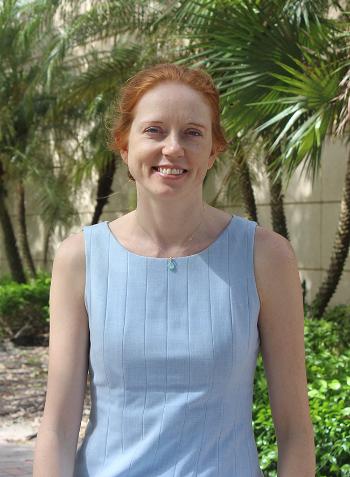Combining the influence, expertise, and academic leadership of over 200 intellectuals – from all major regions of the world and 10 different scholastic disciplines – to address pressing 21st century global and social issues is the mission of the International Panel on Social Progress (IPSP).
The goal for the IPSP is to deliver a report, composed of 22 chapters, presenting succinct research on topics such as, democracy and law, religion and family, economic inequality, urban issues, education, and global health to be delivered to today’s decision-makers, politicians, media outlets, government entities and social organizations. The overall aim of the report is to restore hope in social progress by stimulating intellectual and public debates and promote long-term research on social values necessary for human beings’ quality of life.
 |
| Dr. Merike Blofield, associate professor, Political Science |
Personally invited to be a coordinating lead author of the report is UM’s Director of the College of Arts & Sciences’ Women’s and Gender Studies (WGS) and Associate Professor of Political Science Merike Blofield. As a coordinating lead author, Professor Blofield will work with Dr. Suad Joseph, Professor of Anthropology and Gender, Sexuality, and Women's Studies at the University of California, Davis. Both Blofield and Joseph will guide their group of 13 scholars as they work together to draft a chapter in the report, Chapter 16: Pluralization of Families.
“We have a very exciting group of scholars from many countries and six different disciplines,” said Blofield. “The idea is that we write this chapter, and we all co-sign it together.” When Blofield was invited to join the IPSP panel as a coordinating lead author, she said the idea sounded “crazy and ambitious, but yet, so exciting. How could I say ‘no’? The people involved in [the panel] are so prominent and impressive. It’s an opportunity to have an influence on really important social issues.”
At the inaugural conference held this past August, scholars came together to meet their groups and their coordinating lead authors in Istanbul, Turkey. It was there Blofield met many of her peers who arrived from across the globe – South Africa, Britain, Denmark, Iceland, India, and the U.S. Blofield said the conference in Istanbul was very important because she was able to meet half of her chapter members, yet, not all were able to attend – but that will change.
“The College of Arts & Sciences and the Department of Political Science have both contributed funds to host a workshop here at UM for all the chapter authors at the end of January,” said Blofield. The workshop will last for two days, and Blofield says she is considering hosting a public panel related to the forum “because if we are going to have such amazing brain power here, I think I want to share it.”
In the group’s chapter, Pluralization of Families, each scholar will focus on different social topics related to today’s 21st-century family. “The guiding normative principle that guides our chapter is how to generate conditions that allow families to flourish while at the same time promoting individual dignity and rights,” said Blofield. “We will be looking at what the pluralization of families means conceptually, over time and across countries, as well as specific areas such as, family and the economy, reproduction and the life course, and the state and families, which focuses on the impact of public regulations, transfers and services on family formations and well-being across countries.”
“The whole idea is to make this report as accessible as possible, to as many people as possible,” she explained, “especially politicians, journalists, and opinion leaders; and to get as many people as possible to pay attention to it with the hopes of promoting social progress and a better world.”
Along with her new endeavor as a coordinating lead author for the IPSP report, Blofield is also focusing on her new position as the Director of WSG, a role she began this past July. “My short-term goal is to build further a sense of community in Women’s and Gender Studies,” said Blofield. “I am very positive about [the program], and I would like to see this program grow. My vision is to institutionalize and grow because the program here, compared to peer universities, is very small. We rely on faculty volunteers, adjunct professors, and lecturers to teach our courses on a semester-by-semester basis.”
Blofield says her long-term goals are to institutionalize the program by acquiring faculty and lecturers whose institutional home is Women’s and Gender Studies, and increase the programming budget and the number of students taking courses. Blofield also said she would like to open discussion on a potential name change for the program. “Ideally, down the road, we can consider changing the name to Gender & Sexuality Studies, which has also been the trend in a lot of universities around the country,” she said. “After all, men are half of gender relations, and for example masculinity studies is a fascinating, growing area of research.”
“Overall,” she continued, “we are also excited about interdisciplinary collaboration, for example, with the Miami Institute for the Americas, American Studies, and other programs. It’s a wonderful moment of opportunity for crucial interdisciplinary programs like Women’s and Gender Studies to grow and flourish.”
For more information about the College’s Women’s and Gender Studies Program, visit http://www.as.miami.edu/wgs/; and for more information about the IPSP, visit http://www.ip-socialprogress.org/
October 13, 2015

